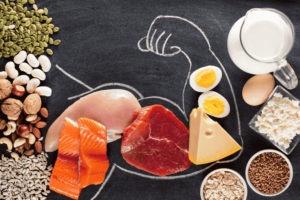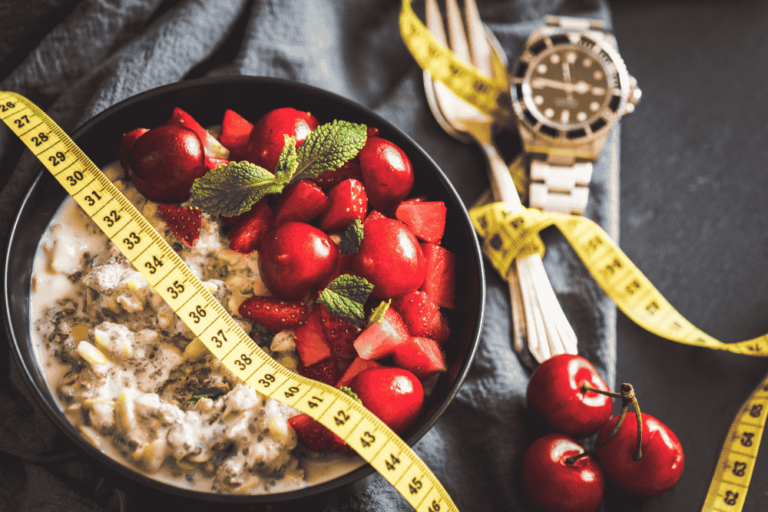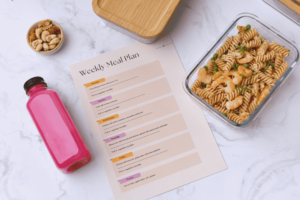

Best Diet for Weight Loss: Secrets to Healthy and Sustainable Fat Loss
Losing weight can be a challenge, but with a balanced, science-based diet, it becomes more manageable. In this guide, we reveal the top nutritional tips and healthy habits to help you lose weight safely and sustainably — without risking your health or energy levels.
How does the Best Diet for weight loss look like?
The ideal weight loss diet helps you cut calories without compromising your health or daily energy. It typically includes:
- Eating lean proteins
- Reducing simple carbs
- Increasing fiber intake
- Drinking plenty of water
- Avoiding processed, high-fat foods
Learn more in our Healthy Diet Guide.
How to Calculate Calories for Weight Loss
To lose weight, use this formula:
Daily Calories = Basal Metabolic Rate (BMR) + Activity Level – Calorie Deficit
A daily deficit of 500–1000 calories typically leads to a loss of 0.5 to 1 kg per week.
For exercise ideas, see our article on Resistance Training for Fat Loss.
Allowed and Avoided Foods in a Weight Loss Diet
Allowed Foods:
- Lean proteins like chicken and fish
- Whole grains such as oats and brown rice
- High-fiber leafy greens
- Healthy fats like olive oil and nuts
Foods to Avoid:
- Sugary snacks and soda
- Fried and fast food
For more fat-burning foods, read our guide on the Best Foods for Fat Loss.
Best Breakfast Options for Weight Loss
Breakfast sets the tone for the day. Choose:
- Oatmeal with milk and nuts
- Greek yogurt with fruit
- Boiled eggs with whole grain toast
Why Water Is Essential for Weight Loss
- Drink 8–12 cups daily to support metabolism and fat burn
- A glass of water before meals can reduce appetite and prevent overeating
The Importance of Protein in Weight Loss
Protein is vital in any effective weight loss diet — it reduces hunger, boosts metabolism, and preserves muscle mass.
Protein Benefits:
- Increases satiety: Reduces cravings for unhealthy snacks
- Boosts metabolism: Burns more calories during digestion
- Preserves muscle mass: Ensures weight loss comes from fat, not muscle
Best Protein Sources:
- Lean meats: Chicken, turkey, lean beef
- Fish: Salmon, tuna, shrimp
- Legumes: Lentils, chickpeas, beans
- Low-fat dairy: Greek yogurt, cottage cheese, skim milk
- Nuts and seeds: Almonds, walnuts, chia seeds
Learn more in our guide on Protein for Muscle Building.
Exercise and Its Role in Weight Loss
Exercise enhances fat loss. The best types include:
- Resistance training: Builds muscle and increases resting burn
- Cardio workouts: Walking, running, cycling — ideal for fat loss
- HIIT: Burns calories even after the session ends
Common Weight Loss Mistakes to Avoid
- Skipping meals slows metabolism
- Inadequate protein intake leads to muscle loss
- Overtraining can cause fatigue and increase appetite
Best Supplements for Weight Loss Support
While not essential, some supplements can help:
- Soluble fiber: Increases fullness
- Green tea: Boosts fat burning
- Whey protein: Supports muscle retention
How Sleep Affects Weight Loss
Lack of 7–9 hours of sleep per night may cause:
- Increased hunger hormones
- Reduced fat-burning capacity
- Higher stress and unhealthy cravings
Motivation Tips for Staying on Track
- Set realistic, achievable goals
- Keep a food journal
- Join a support group for accountability and motivation
When Will You See Results?
Weight loss varies by person, but a healthy rate is 2–4 kg per month with proper diet and exercise.
FAQs About the Best Weight Loss Diet
What’s the best diet without feeling deprived?
A diet that includes a balance of protein, healthy carbs, and good fats.
Can I lose weight fast without harming my health?
Yes — by combining clean nutrition and regular workouts.
What’s the best time to exercise for fat burning?
Morning workouts on an empty stomach can enhance fat burn.
Does eating fewer meals help?
Not necessarily. The key is what you eat and your total daily calorie intake.
Can I lose weight without exercising?
Yes, but progress is typically slower than when combining diet with physical activity.
Conclusion
The best weight loss diet focuses on healthy food choices, hydration, regular activity, and proper sleep. Remember, consistency and planning are crucial for long-term success.


